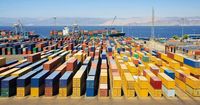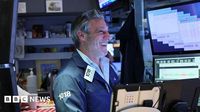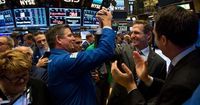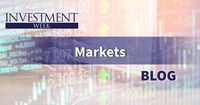On April 9, 2025, Donald Trump announced a 90-day pause on his sweeping tariff scheme, citing that countries had started to get "yippy." This unexpected terminology raised eyebrows among reporters and analysts alike, prompting questions about its meaning. Was the former president alluding to the golfing term referring to the 'yips,' a condition that affects golfers' putting? Dr. Robbie Love, a senior lecturer in English Language and Linguistics at Aston University, provided some insight, tracing the word "yip" back to the 1400s, where it originally described the cheeping of hatchlings. By the 20th century, it had evolved to denote the high-pitched barks of small dogs and any short, high-pitched cry from humans. He speculated that Trump might have meant that he was inundated with communications regarding the tariffs or perhaps that world leaders were becoming skittish.
This announcement came as a relief to investors, as it coincided with a significant surge in the stock market. The S&P 500 soared by 9.5%, marking one of its most substantial gains since World War II. The Dow Jones Industrial Average climbed nearly 3,000 points, and the Nasdaq composite jumped 12.2%. Stocks in various sectors, particularly travel and technology, surged as fears of dire economic consequences from the tariffs began to dissipate. Companies like Tesla, which rose nearly 18%, and Apple, which gained 9.5%, were among those that benefited from the market's positive response.
Travel-related companies experienced a significant boost, with United Airlines and Delta Airlines both gaining over 20%. This surge followed a period of sharp declines due to the uncertainty surrounding Trump's tariff announcements. General Motors, Ford, and Stellantis also saw their stocks rise, reflecting a broader optimism in the automotive sector.
In a press conference at the White House, Trump stated, "I can’t imagine" needing to increase tariffs on China again to bring them to the negotiating table. He indicated that the tariff on China would rise to 125% immediately, a move that many analysts believe could exacerbate trade tensions further. In retaliation, China announced that its tariff on U.S. goods would increase from 34% to 84%, effective April 10, 2025.
Despite the optimism in the stock market, concerns lingered regarding the broader implications of Trump's tariff strategy. Scott Bessent, U.S. Treasury Secretary, remarked that the markets had misunderstood the maximum levels of tariffs announced by Trump, stating, "He created maximum negotiating leverage for himself." Meanwhile, White House press secretary Karoline Leavitt suggested that media outlets had misinterpreted Trump's intentions, asserting that the U.S. was becoming more appealing to global markets than China.
However, not everyone viewed the situation positively. Senate Minority Leader Chuck Schumer criticized the administration's handling of the economy, claiming that businesses were on hold due to the chaos surrounding Trump's policies. He stated, "Every day becomes worse in terms of chaos and unpredictability." In contrast, billionaire hedge fund manager Bill Ackman lauded Trump's approach, calling it "textbook, Art of the Deal."
As the markets reacted to the tariff pause, analysts noted that the bond market had been volatile, with Trump stating that it looked "beautiful" after observing a recent sell-off. The bond market's fluctuations were indicative of a broader uncertainty surrounding U.S. economic policy, with some analysts warning that the sell-off could signal a loss of confidence in U.S. assets as safe havens.
In the wake of these developments, the Bank of England issued a warning about the potential risks that U.S. tariffs could pose to global economic growth. The Financial Policy Committee noted that the global risk environment had deteriorated, increasing the probability of adverse events. This situation was particularly relevant for the U.K., given its open economy and significant financial sector.
As the day progressed, the FTSE 100 index in London fell by 2.4%, reflecting the uncertainty in European markets. The DAX in Germany and the CAC 40 in France also experienced declines, as investors reacted to the escalating trade tensions. The European Union indicated it would impose tariffs on U.S. imports, further complicating the situation.
In Ireland, Premier Micheal Martin warned that some businesses had already begun to see orders from the U.S. "slowing or drying up entirely" due to the tariffs. He expressed concern over the impact of the 20% tariff on most EU goods, which could negatively affect the Irish economy and put jobs at risk.
As the world watches the unfolding trade saga, analysts at AJ Bell suggested that three potential catalysts could drive a market rebound: a pause on tariffs, countries announcing deals with Trump, or intervention from the Federal Reserve. They cautioned that the unpredictability of Trump's administration made it challenging to forecast market movements.
In a social media post, Trump urged calm, stating, "BE COOL! Everything is going to work out well. The USA will be bigger and better than ever before!" He added, "THIS IS A GREAT TIME TO BUY!!! DJT," indicating his belief in a swift recovery.
The situation remains fluid, with investors and analysts closely monitoring the developments surrounding U.S. tariffs and their global implications. As the world grapples with the effects of these economic policies, the uncertainty surrounding trade relations continues to loom large, leaving many to wonder what the future holds for international commerce.







